17 Jun2022
By Lisa Bisogno
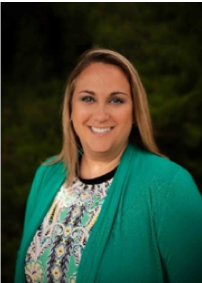 AACTE’s 2022 Washington Week was by far the most productive, inspirational, and collaborative Washington Week than those I previously attended. The culmination of Holmes Scholars, State Leaders Institute (SLI), and Day on the Hill allowed scholars, deans, faculty, and state affiliate leaders to discuss and gather new perspectives on the three strands:
AACTE’s 2022 Washington Week was by far the most productive, inspirational, and collaborative Washington Week than those I previously attended. The culmination of Holmes Scholars, State Leaders Institute (SLI), and Day on the Hill allowed scholars, deans, faculty, and state affiliate leaders to discuss and gather new perspectives on the three strands:
- Censorship
- Educator shortage
- Educator diversity
A sense of unity and gaiety could be felt as state teams worked together to plan their discussion about legislation priorities and strand topics during congressional visits with senators and congressmen/women.
17 Jun2022
By Michael Rose

A bipartisan group of senators has reintroduced the Civics Secures Democracy Act of 2021, which would authorize a historic investment to support K–12 civic education and American history.
Over the last several decades, civics education in American schools has seen a significant decline. Given the divisiveness in our politics and the lack of knowledge and understanding of democratic principles, norms, and institutions, a robust investment in civics education is needed.
17 Jun2022
By AZEdNews
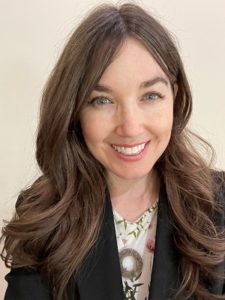 The Arizona Teacher Residency has accepted its first cohort of 30 future teachers, as well as the 30 supervising teachers who will be working with those teacher residents this next school year.
The Arizona Teacher Residency has accepted its first cohort of 30 future teachers, as well as the 30 supervising teachers who will be working with those teacher residents this next school year.
The Arizona Teacher Residency is a first-of-its-kind graduate program in Arizona modeled after medical residencies to help recruit, prepare, support and retain K-12 teachers, especially those with identities that have been underrepresented in the teaching population. The two-year program provides aspiring teachers with in-classroom experience, a living stipend, a master’s degree and a job at a partnering school district. Residents will receive mentoring and induction from a trained instructional mentor through the Arizona K12 Center in their second year with the support continuing into the third year.
17 Jun2022
By Allison Matthews

(Photo by Grace Cockrell)
A group of young people with Autism Spectrum Disorder who are interested in science, technology and related fields are getting a new chance to learn about physics and other topics as part of an innovative camp at Mississippi State, which may be the country’s first of its kind.
MSU Assistant Professor of Physics Ben Crider is using a prestigious $600,000 National Science Foundation 2019 Career Grant to advance his nuclear physics research, which includes a highly interactive summer experience for students with autism that was delayed due to COVID-19.
17 Jun2022
$2 Million Will Be Dispersed to Educator Preparation Programs Over the Next Two Years
By David Bednarz and Eric Scoville

Governor Ned Lamont and Connecticut Education Commissioner Charlene Russell-Tucker today announced new investments to defray certification-related testing costs for aspiring educators in Connecticut.
A total of $2 million dollars of federal, state-level reserve American Rescue Plan Act, Elementary and Secondary School Emergency Relief (ARP-ESSER) funding is being dedicated over a two-year period, which includes $750,000 in year one and $750,000 in year two. The remaining $500,000 is being set aside for educators of color and other educators who will be completing their student teaching in urban school districts.
14 Jun2022
A 2022 Washington Week Recap and Reflection
By Leslie Ekpe
*Slides from this session are provided by Jennifer Ruth, Ph.D., Higher Education Faculty Lead at African American Policy Forum, and can be found on AACTE Connect360.
 COVID-19 has exacerbated a pre-existing education crisis and increased inequalities since its outbreak two years ago. And now, educators around the nation are grappling with yet another challenge. Outside of academia, critics are condemning the fight for intellectual freedom.
COVID-19 has exacerbated a pre-existing education crisis and increased inequalities since its outbreak two years ago. And now, educators around the nation are grappling with yet another challenge. Outside of academia, critics are condemning the fight for intellectual freedom.
In the past couple of months, the attack on academic freedom at K-12 and post-secondary levels has reached new heights. From the fight to remove books affiliated with the history of the United States of America to the “great resignation” being affiliated with teacher shortages directly affecting the sustainability of education. There is a direct assault on education from all areas of social and political streams. For example, some of the significant challenges being faced are critical race theory (CRT) education, academic tenure, educator resources, and the hindering of legislative impediments to the educational curriculum. Below are some of the recent headlines featuring these issues:
14 Jun2022
By Michael Rose and Jacqueline Rodriguez
On June 9, Department of Education Secretary Miguel Cardona released a vision to support and elevate the teaching profession. AACTE applauds the vision to recruit, develop, and retain future educators in a time when extreme educator shortages are afflicting the country, and looks forward to working with the secretary to realize each strategy. The secretary’s vision, announced during a fireside chat at AACTE member institution, Bank Street College of New York, arrived on the heels of AACTE’s premier advocacy event, Washington Week, as AACTE members and its state affiliates met with their federal legislators to promote comprehensive educator preparation.
13 Jun2022
By Tommy Stevens

Earlier this year, a gay music teacher in Iowa was pressured into resigning from a private school after being outed1. As a queer nonbinary Iowan and a preservice teacher, I am continually reckoning with my place in education. My education has and continues to be engulfed in heteronormativity. Elementary school through college, I have heard about Mrs. Y’s husband. I had Ms. Z as a permanent substitute twice because Mrs. X was having a baby. Mr. W often placed an open call for babysitters because he and his wife were having a date night. The narrative of a happily married husband and wife with children was and is so common it erases other ways of being. Indeed, I was shocked to discover during high school that my Kindergarten teacher was gay. He is one of two LGBTQ+ teachers I have had. I distinctly remember the relief of knowing that queer elementary teachers exist. If Mr. Knoer could be gay in 2006, I can be queer and trans in 2022.
13 Jun2022
By Kaitlyn Brennan
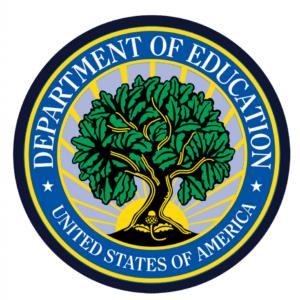 This weekly Washington Update is intended to keep members informed on Capitol Hill activities impacting the educator preparation community. The views expressed in this post do not necessarily reflect the views of AACTE.
This weekly Washington Update is intended to keep members informed on Capitol Hill activities impacting the educator preparation community. The views expressed in this post do not necessarily reflect the views of AACTE.
This week Congress is back in session and we have learned that the House has set the schedule for marking up FY2023 bills this month. Reports signal that on June 22, the House will approve the 12 subcommittee allocations, meaning they will set the mark for the total amount each subcommittee will have to work from. On June 30, starting at 10 a.m. EST the Committee will mark up the Labor-HHS-Education bill. It is sure to be a busy summer as advocates continue to urge Members to make significant investments in education- specifically investments targeted to address the critical shortage of educators and specialized instructional support personnel across the nation.
10 Jun2022
By Dorie Turner Nolt, Jolene and J. Fidel Turner
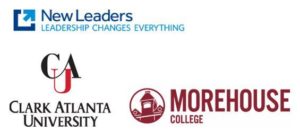 Educators looking to become school leaders in 37 states and Washington, DC, can now enroll in the National Aspiring Principal Fellowship, a first-of-its-kind program created by national nonprofit New Leaders in partnership with distinguished historically Black institutions Clark Atlanta University and Morehouse College to dramatically boost the number of principals of color leading K-12 schools across the country.
Educators looking to become school leaders in 37 states and Washington, DC, can now enroll in the National Aspiring Principal Fellowship, a first-of-its-kind program created by national nonprofit New Leaders in partnership with distinguished historically Black institutions Clark Atlanta University and Morehouse College to dramatically boost the number of principals of color leading K-12 schools across the country.
10 Jun2022
By Madeline Will
This article originally appeared in Ed Week.
Alternative-certification programs have long been thought of as one solution to teacher shortages, but a new analysis shows that the number of candidates completing those programs has declined over the past decade, despite a boom in enrollments and new offerings.
The findings underscore the complex and changing nature of the teacher hiring pipeline: Alternative programs are typically cheaper and faster than traditional teacher-preparation programs based at colleges and universities. They are bringing in new and more diverse talent to the teaching workforce. But as the authors of the new report warn, their candidates don’t always finish, and quality control remains an issue.
10 Jun2022
By James Minichello

The 17 organizations above representing the full breadth of the national K-12 education community, including school superintendents, administrators, educators, school mental health providers, school staff and parents, call on Congress to swiftly pass legislation that will address the senseless epidemic of gun violence in this country.
Schools and educators alone cannot bear the full burden of addressing the public health crisis of gun violence. The answer to stopping gun violence in our schools is not to arm our educators or to focus solely on better addressing the mental health crisis. As a nation, we must take a hard look at the various societal factors that are contributing to our high rates of gun violence and suicide and commit to meaningful action.
10 Jun2022
2022 Washington Week Attendee Recaps Her Experience
By Christine Gentry
 This year, AACTE’s Washington Week event (Educating the Future: Policy and Advocacy as Levers of Change) was held in person for the first time in three years. The energy in the Renaissance Arlington Capital View Hotel was high as colleagues met and reunited with each other.
This year, AACTE’s Washington Week event (Educating the Future: Policy and Advocacy as Levers of Change) was held in person for the first time in three years. The energy in the Renaissance Arlington Capital View Hotel was high as colleagues met and reunited with each other.
The week opened on Monday with a warm welcome by Lynn M. Gangone (AACTE’s president and CEO), followed by a plenary session on AACTE’s legislative priorities by Mike Rose (AACTE’s senior director of government relations) and members of AACTE’s Committee on Government Relations and Advocacy (including myself), who offered tips on having successful meetings with public officials.
09 Jun2022
By Matthew Wales

Time is running out to join your colleagues at AACTE’s 2022 Leadership Academy! Whether just beginning your career in academic leadership, or a seasoned and experienced leader with years of experience, this reimagined Academy provides professional development that is essential and applicable to everyone. And at a registration price point lower than at any time in the last 10 years, there’s no better way to gain essential training while being mindful of your budget as well.
As the education climate continues to evolve, leaders today find themselves navigating a number of hot topics. At this year’s Leadership Academy, attendees will have an opportunity to explore these pressing items. Whether reviewing case studies that are “ripped from the headlines,” or interacting in roundtables to brainstorm solutions to problems of practice, participants are sure to walk away from this Academy with action items to implement upon returning to their institutions.
08 Jun2022
By AACTE
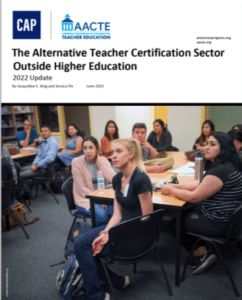 The Center for American Progress (CAP) and the American Association of Colleges for Teacher Education (AACTE) today released The Alternative Teacher Certification Sector Outside Higher Education. The report, which builds upon CAP’s 2020 study of this sector, updates and extends the analysis to include more recent student data and a historical look at patterns in the teacher preparation program landscape.
The Center for American Progress (CAP) and the American Association of Colleges for Teacher Education (AACTE) today released The Alternative Teacher Certification Sector Outside Higher Education. The report, which builds upon CAP’s 2020 study of this sector, updates and extends the analysis to include more recent student data and a historical look at patterns in the teacher preparation program landscape.
In response to the teacher shortage, some states allow non-traditional models for preparing teachers, including alternative certification programs run by organizations other than colleges and universities. According to the report authors Jacqueline King, senior consultant to AACTE, and Jessica Yin, former policy analyst for the K-12 Education Team at CAP, The Alternative Teacher Certification Sector Outside Higher Education provides information for policymakers, education researchers, and leaders in educator preparation seeking to better understand this sector and identify necessary legislation, regulations, or opportunities for additional research. It tracks enrollment and completion trends in this sector over the last decade, with particular attention to fast-growing programs run by for-profit companies that account for nearly 70 percent of all students enrolled in the sector as of academic year 2018-19.
 AACTE’s 2022 Washington Week was by far the most productive, inspirational, and collaborative Washington Week than those I previously attended. The culmination of Holmes Scholars, State Leaders Institute (SLI), and Day on the Hill allowed scholars, deans, faculty, and state affiliate leaders to discuss and gather new perspectives on the three strands:
AACTE’s 2022 Washington Week was by far the most productive, inspirational, and collaborative Washington Week than those I previously attended. The culmination of Holmes Scholars, State Leaders Institute (SLI), and Day on the Hill allowed scholars, deans, faculty, and state affiliate leaders to discuss and gather new perspectives on the three strands:












